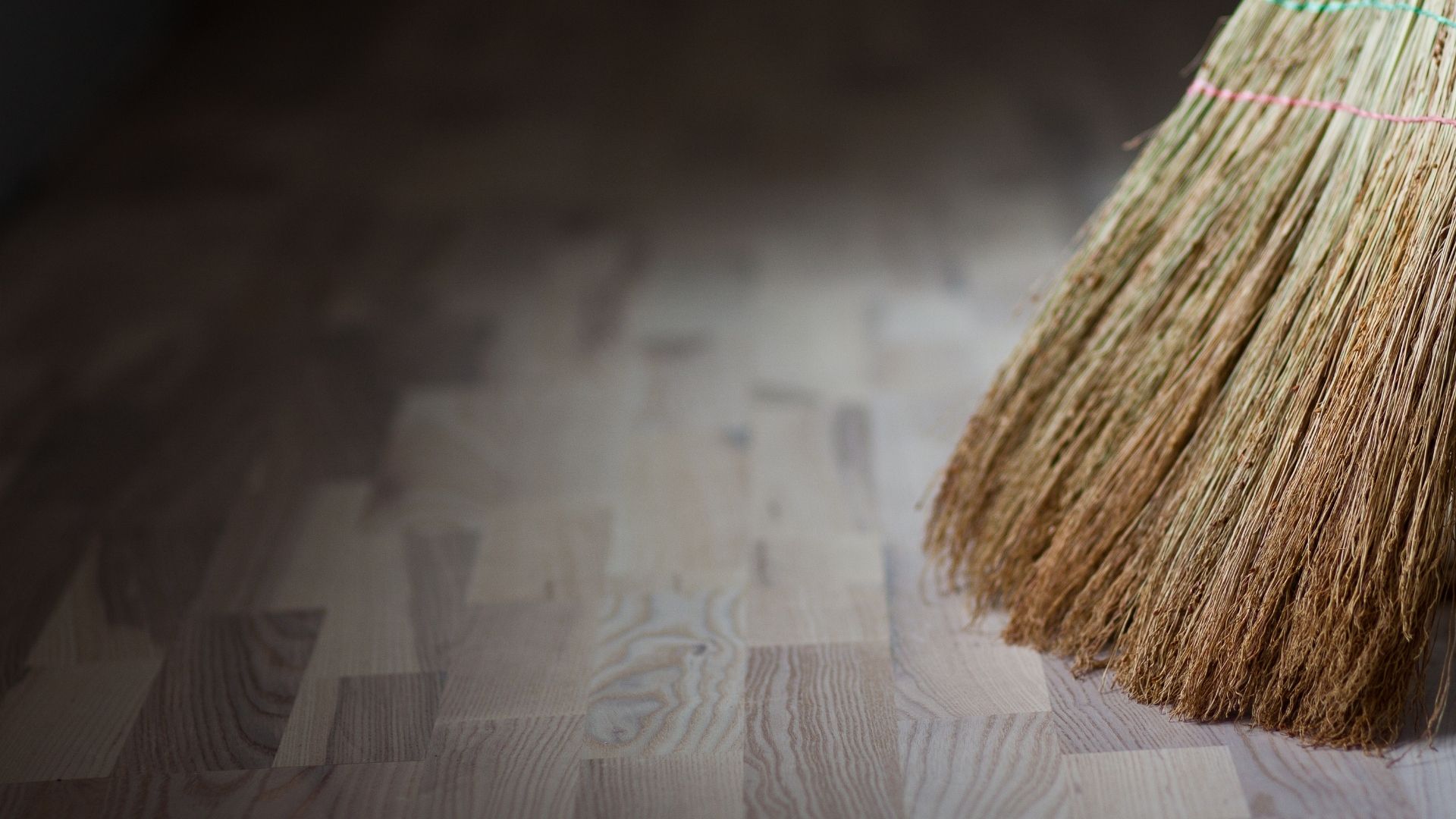There was a spot, right at the back of my dining room, in the cheap rental house where we lived after losing our home to foreclosure.
A cramped, annoying spot. Difficult to get to, because the room was more of a breakfast nook really, and our big clumsy table took up far too much space. Frustrating to clean, because the broom or mop would just clatter around table legs, barely making a notable difference to the aging, stained floor.
This spot was always the last place I got to when sweeping the kitchen. Always the last corner to be cleaned on “house cleaning” days. It was a weary old spot that had somehow come to hold all my frustrations: all my yawning, gaping exhaustion and the hurt of losing a home. All the shame of being powerless and poor, all the unmet longing for change.
Of course, myself and I, had never had a conscious conversation about this “spot.” It just sat there, being a corner: disliked, cramped, awkward, and annoying to clean.
One day, while going about my daily mom-tasks, picking up clothes and washing dishes, absent-mindedly wondering if something new and good would ever come along, I said out loud (as one sometimes does),
“Where are you, God?”
And almost before the thought had gathered itself to become a sentence—almost before it had left my tongue, almost before it was even a question—I knew the answer.
God was in that spot.
God was in the most mundane, powerless, painful place. God was here with me, waiting and longing, hoping and aching, experiencing every inch of my humanness with me, dying and crying for change.
This is the poem I wrote about this “spot” that day:
“Between the Wall and the Table”
Between the wall and the table
In the last place I sweep
In the last piece of dirt
I found you
And round by the sink
At my sentry stand
With suds on my fingers
Old food on my hands
Not doing what I love
Just doing what I should
There, I found you
Then, out on the prairie
Where it’s lovely and wild
Where no word, or breath, or sigh could
express it Where every color is singing
and shouting And every bird’s whistle
crushes my heart The whole Earth
inhales
And releases again
And the wind cries ‘low’
As she sweeps across the valley
The birds gladly ride it
To the mountains high
Where my peering eyes follow
And I’m blessed, and I’m blessed
Gulping down love
Famished babe at the breast
There, I found you
In every song that I ever sang
Ripped clean from my lungs
Red flesh from my breast
A ragged sharp edge
Like the beat of a heart
Or a butterfly’s wing
This wild thing
Comes soaring or whispering
Out of my soul
That single note
Now it rises
Up in the tower room, when I was a child
I’d sing the whole hymnal just to cry out your name
There, and there, and there
I found you
In my father’s benediction
In my mother’s tears
In the bread and the wine
Your body for mine
In my lover’s skin
In the lush green grass of my children’s laughter
In my best friend’s mind
Understanding mine
There, and there, and there
I found you
Between the wall and the table
In the last place I sweep
In the last piece of dirt
I found you
The ancient Scots, my ancestors, believed that in the liminal space of nature, on the night
when one season ends and another begins, the Spirits can be more vividly seen, more clearly
heard; they enter in.
It’s in the liminal space, when there is both light and dark, both sunshine and rain, that we are
able to see that which is always there. Always there, but normally invisible to the naked eye:
the rainbow of colors from which all light is made.
It’s in the middle-space of both dying and rising that reality widens out and we see
everything, from one end of the horizon to the other:
A God who chooses to be weak with us. A God whose strength is love.
A God you can be angry at, while you are held, deep in the womb of Her love.
The Great Love that spans over all and can’t be manipulated or owned, only freely given and freely received.

